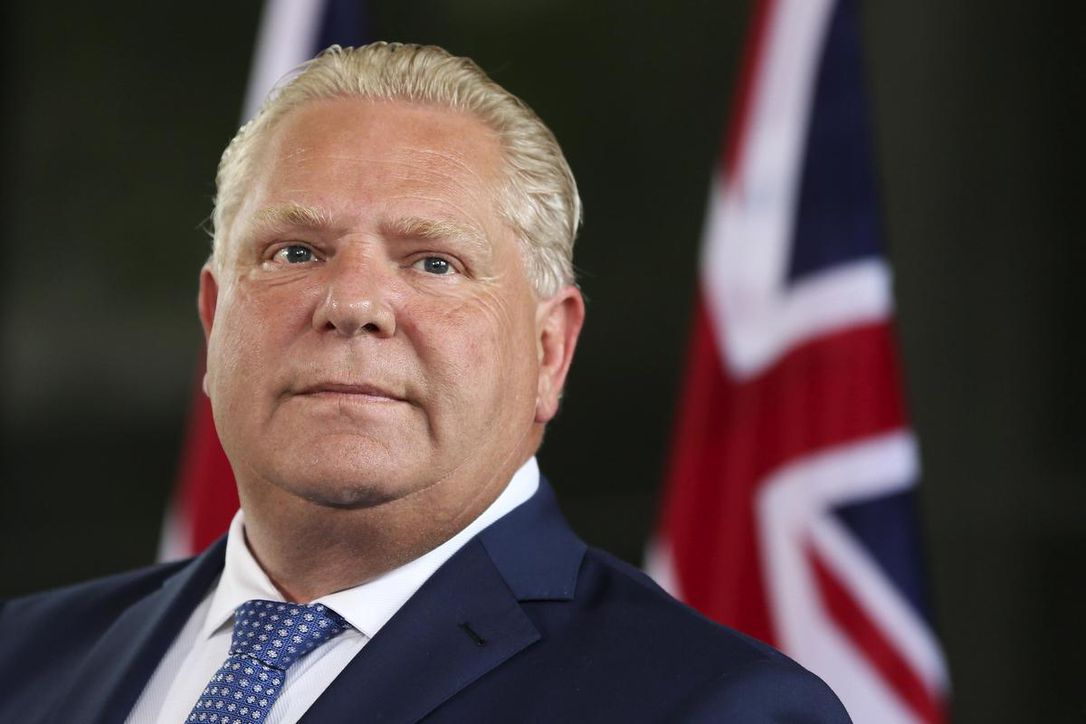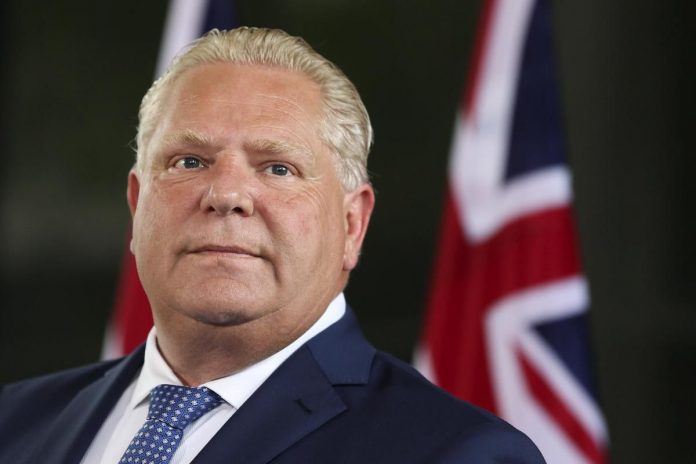[ad_1]
MONTREAL — Ontario premier-designate Doug Ford is being courted by Quebec to form a common front to counter the economic uncertainty and protectionist measures that have emerged from U.S. President Donald Trump’s White House.
Quebec Premier Philippe Couillard said Wednesday he had spoken with Ford “so that our respective administrations will begin collaborating as of right now — right now — to identify short-term joint initiatives” to defend the economic interests of Canada’s two largest provinces, which account for nearly 60 per cent of the country’s GDP.

Both Ontario and Quebec have been affected by U.S. tariffs on steel and aluminum that were imposed by the Trump administration, citing national security concerns. The Canadian government has argued it is absurd to consider America’s northern neighbour a security threat and invoking the particular clause to impose tariffs is illegal.
Ontario faces the additional looming threat its automotive manufacturing industry will be subjected to American tariffs on Canadian-made cars. Trump said in a June 9 tweet that automobiles manufactured in this country were “flooding the U.S. market.”
An aide to the Quebec premier said Ford was “very receptive” to Couillard’s overture. While the two provinces have opposing views on some policy matters, such as the fight to reduce greenhouse gas emissions, they both recognized they have a responsibility to defend workers and businesses in their respective provinces directly affected by the protectionist U.S. trade measures.
A spokesperson for Ford, who will be sworn in on June 29, said the incoming premier “has to consult with labour, industry, and his ministers on a plan going forward.”
Melissa Lantsman confirmed he would continue to “be in contact” with Quebec officials on the file.
At a news conference last week, Ford said he would work with Ottawa and other provincial governments to combat American protectionism.
“We’re going to stand united. I know all provinces should be standing united with our federal counterparts and we’ll deal with that,” Ford said.
While the incoming Ford administration is still occupied with forming a cabinet and getting a grip on the reins of power, the Quebec government plans to introduce measures to encourage businesses and government contracts to favour local suppliers for goods and services.
The Quebec-Ontario outreach occurred on the same day Global Affairs Minister Chrystia Freeland travelled to Montreal to discuss support for workers in the province’s ailing aluminum and steel sectors.
“Coordination between the provinces is very useful,” she told reporters following a luncheon speech. She said the support from the provinces, business leaders and unions has been exemplary throughout the ongoing process of renegotiating the North American Free Trade Agreement and in opposing the tariffs.
Despite the tough talk from Washington and defensive countermeasures being prepared by the provinces, Freeland said she remained optimistic there will be a harmonious resolution to the currently strained Canada-U. S. trade relationship.
“I’m kind of an economic determinist,” she said. “I like to think that if an economic relationship is a good one for both sides then at the end of the day both sides are going to maintain that economic relationship.”
In Washington Wednesday, Republican and Democratic senators on the U.S. Senate finance committee both expressed concerns American tariffs on steel and aluminum were having a detrimental effect on American businesses and driving up prices for consumers.
Republican Sen. Orrin Hatch led the charge before questioning Trump’s Commerce Secretary Wilbur Ross.
“As you consider these tariffs, know that you are taxing American families, you are putting American jobs at risk, and you are destroying markets — both foreign and domestic — for American businesses of all types, sorts, and sizes,” he said.
The Washington Post also quoted Republican Sen. Patrick Toomey saying: “I wish we would stop invoking national security, because that’s not what this is about … This is about economic nationalism.”
Ross said the tariffs against Canada and Mexico were imposed in the absence of a renegotiated NAFTA, according to The Canadian Press.
“Our objective is to have a revitalized NAFTA, a NAFTA that helps American and, as part of that, the (national security tariffs) would logically go away, both as it relates to Canada and as to Mexico,” Ross said.
Asked about Ross’s committee appearance, Freeland said she was “pleased to see (him) acknowledge that Canadian steel does not pose a security threat to the United States.”
“We think that is self evident and that is what we’ve been saying from the beginning.”
With files from Robert Benzie
Allan Woods is a Montreal-based reporter covering politics and current affairs in Quebec. Follow him on Twitter: @WoodsAllan
TOP STORIES, DELIVERED TO YOUR INBOX.
[ad_2]








